木野龍逸 (Ryuichi KINO) @kinoryuichi さんのツイート。
――安倍政権が国連特別報告者に抗議の英文記事。詳しいです。
⇨Japan protests against U.N. privacy expert's queries on contentious bill http://reut.rs/2q0DjSh @Reutersさんから〔18:29 - 2017年5月22日 〕—―

転載元:おがちい @littleboninさんのツイート〔13:50 - 2017年5月22日 〕
人権を国民からはく奪して、
国民の監視体制を戦前に戻すという
ファシスト晋三の物言いが
世界に通用するか。
見解を単に聞かれただけなのに、
猛烈な抗議!
リットン調査団に対する戦前の愚か者どもを彷彿とさせる
この国連への
理屈にならぬ安倍政権の反発を
ロイターが
世界中に発信。
このまま孤立路線を貫けば、
今後は、
世界から危険な国としてマークされることになる。
〔資料〕
「Japan protests against U.N. expert's queries on bill to fight terrorism」
reuters( Mon May 22, 2017 )
☆ 記事URL:http://www.reuters.com/article/us-japan-politics-conspiracy-idUSKBN18I0CG

Japan on Monday protested against a letter to Prime Minister Shinzo Abe from a U.N. independent expert raising concerns that planned legislation targeting conspiracies to commit terrorism and other crimes could allow police to trample civil liberties.
The protest by Chief Cabinet Secretary Yoshihide Suga drew a stiff rejoinder from Joseph Cannataci, U.N. special rapporteur on the right to privacy, who blasted Suga's comments as "angry words" with "no substance" in an email to Reuters.
The lower house of Japan's parliament is expected to approve the bill as early as Tuesday, setting the stage for enactment.
Tokyo says the legal changes are needed to ratify a U.N. treaty aimed at battling international organized crime and fighting terrorism, as Tokyo prepares to host the 2020 Olympics.
Opponents see the proposals as part of Abe's agenda to tighten the government's grip at the expense of individual rights.
The content of the May 18 letter from Cannataci was "clearly inappropriate and we strongly protested," Suga said.
"It is not at all the case that the legislation would be implemented arbitrarily so as to inappropriately restrict the right to privacy and freedom of speech," he added.
In the letter released on the website of the Office of the U.N. High Commissioner for Human Rights, Cannataci referred to concerns that the bill's broad scope might "lead to undue restrictions to the rights to privacy and to freedom of expression".
He asked Abe for information on the accuracy of such concerns and the compatibility of the draft law with international human rights norms and standards.
"Unless and until corrected on any point of fact, I stand by every single word, fullstop and comma of what I wrote to Prime Minister Shinzo Abe," Cannataci wrote in his email.
"There is absolutely no justification for the Japanese Government to behave in this way and push through seriously defective legislation in such a rush."
Critics including the Japan Federation of Bar Associations have also warned the changes, combined with a recent widening of legal wiretapping and courts' reluctance to rein in police surveillance powers, could deter grassroots opposition to government policies.
The lawyers' group has expressed concern that ordinary citizens would be targeted, despite government assurances to the contrary, and that the crimes governed by the law include acts unrelated to organized crime or terrorism.
Japanese governments have tried to pass similar legislation three times since 2000, when the United Nations adopted a Convention against Transnational Organised Crime.
But Abe's ruling coalition, with a two-thirds majority in both houses of parliament, looks likely to enact the bill this time, despite loud opposition protests.
A Kyodo news agency survey published on Sunday showed voters are split over the controversial bill, with support at 39.9 percent and opposition at 41.4 percent.
(Reporting by Linda Sieg; Editing by Clarence Fernandez)
――安倍政権が国連特別報告者に抗議の英文記事。詳しいです。
⇨Japan protests against U.N. privacy expert's queries on contentious bill http://reut.rs/2q0DjSh @Reutersさんから〔18:29 - 2017年5月22日 〕—―

転載元:おがちい @littleboninさんのツイート〔13:50 - 2017年5月22日 〕
人権を国民からはく奪して、
国民の監視体制を戦前に戻すという
ファシスト晋三の物言いが
世界に通用するか。
見解を単に聞かれただけなのに、
猛烈な抗議!
リットン調査団に対する戦前の愚か者どもを彷彿とさせる
この国連への
理屈にならぬ安倍政権の反発を
ロイターが
世界中に発信。
このまま孤立路線を貫けば、
今後は、
世界から危険な国としてマークされることになる。
〔資料〕
「Japan protests against U.N. expert's queries on bill to fight terrorism」
reuters( Mon May 22, 2017 )
☆ 記事URL:http://www.reuters.com/article/us-japan-politics-conspiracy-idUSKBN18I0CG

Japan on Monday protested against a letter to Prime Minister Shinzo Abe from a U.N. independent expert raising concerns that planned legislation targeting conspiracies to commit terrorism and other crimes could allow police to trample civil liberties.
The protest by Chief Cabinet Secretary Yoshihide Suga drew a stiff rejoinder from Joseph Cannataci, U.N. special rapporteur on the right to privacy, who blasted Suga's comments as "angry words" with "no substance" in an email to Reuters.
The lower house of Japan's parliament is expected to approve the bill as early as Tuesday, setting the stage for enactment.
Tokyo says the legal changes are needed to ratify a U.N. treaty aimed at battling international organized crime and fighting terrorism, as Tokyo prepares to host the 2020 Olympics.
Opponents see the proposals as part of Abe's agenda to tighten the government's grip at the expense of individual rights.
The content of the May 18 letter from Cannataci was "clearly inappropriate and we strongly protested," Suga said.
"It is not at all the case that the legislation would be implemented arbitrarily so as to inappropriately restrict the right to privacy and freedom of speech," he added.
In the letter released on the website of the Office of the U.N. High Commissioner for Human Rights, Cannataci referred to concerns that the bill's broad scope might "lead to undue restrictions to the rights to privacy and to freedom of expression".
He asked Abe for information on the accuracy of such concerns and the compatibility of the draft law with international human rights norms and standards.
"Unless and until corrected on any point of fact, I stand by every single word, fullstop and comma of what I wrote to Prime Minister Shinzo Abe," Cannataci wrote in his email.
"There is absolutely no justification for the Japanese Government to behave in this way and push through seriously defective legislation in such a rush."
Critics including the Japan Federation of Bar Associations have also warned the changes, combined with a recent widening of legal wiretapping and courts' reluctance to rein in police surveillance powers, could deter grassroots opposition to government policies.
The lawyers' group has expressed concern that ordinary citizens would be targeted, despite government assurances to the contrary, and that the crimes governed by the law include acts unrelated to organized crime or terrorism.
Japanese governments have tried to pass similar legislation three times since 2000, when the United Nations adopted a Convention against Transnational Organised Crime.
But Abe's ruling coalition, with a two-thirds majority in both houses of parliament, looks likely to enact the bill this time, despite loud opposition protests.
A Kyodo news agency survey published on Sunday showed voters are split over the controversial bill, with support at 39.9 percent and opposition at 41.4 percent.
(Reporting by Linda Sieg; Editing by Clarence Fernandez)










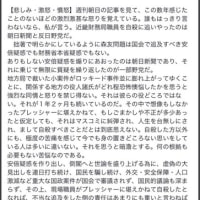
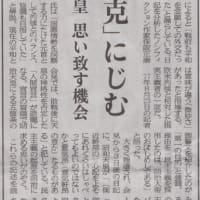
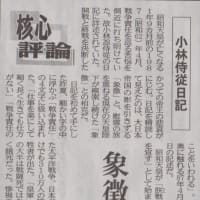
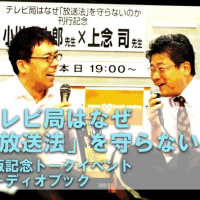

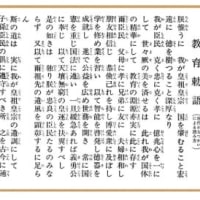



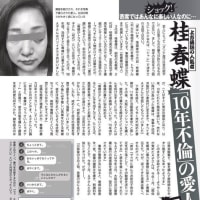
抗議活動は昼からです・・・
もうどうしたらよいのやら・・・。
とにかく、海外からの助けを・・・。
国連人権委員会って所からだなんて、一体日本はどれだけ後進国なのでしょう。
WhiteFairy@conejItonel1さん?、綴り違っているかもしれませんが、海外に助けを求めるツイートがありました。
スノーデン氏のtwitter もあったように記憶してます。